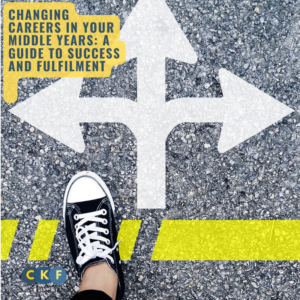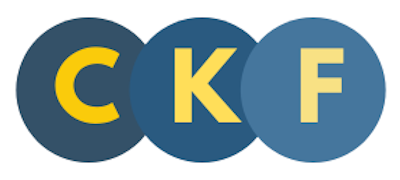 Changing careers in your middle years can seem daunting, but I’m finding it’s becoming increasingly common as many of my customers seek more fulfilling and rewarding work. Many of my customers are leaving careers after 25 years+ to seek different, more fulfilling and rewarding work.
Changing careers in your middle years can seem daunting, but I’m finding it’s becoming increasingly common as many of my customers seek more fulfilling and rewarding work. Many of my customers are leaving careers after 25 years+ to seek different, more fulfilling and rewarding work.
Whether you’re looking for a better work-life balance, a career that aligns with your values, or simply a fresh start, there are many paths to explore. In this blog post, I’ll discuss key considerations for a successful career change, including transferable skills, identifying your priorities, and finding a career that suits your values and lifestyle.
Understanding Your Transferable Skills
One of the biggest hurdles when changing careers is the fear that you’re starting from scratch. However, you will have a wealth of transferable skills that can be applied to new roles. These are skills and competencies that you’ve developed throughout your career, education, or personal experiences that can be used in various fields. Here are some examples of transferable skills:
- Communication: Don’t underestimate this skill! There’s more to it than you may think and it’s one of the most highly sought after skills by employers. If you have emotional intelligence, good listening skills, the ability to build rapport, show empathy, negotiate, influence, present (you get the idea), then the employer needs to know!
- Problem-solving: Employers value people who can think critically and find solutions to complex problems. You will see ‘creative problem solving skills’ on lots of job criteria, so if you have creativity too – great, flaunt it.
- Project management: This one can often go undetected in my customers. If you’ve led change, run investigations end to end, or set something up from scratch – then you’ve developed project management skills. You just need to own it. Yes a course may help (PRINCE2®) if you want to specifically go for PM roles, but if you’re applying for roles where PM is a part of your work – then apply with confidence.
- Customer service:If you’ve worked in roles that require customer interaction, then you’ve likely managed complaints, de-escalated conflict and built trust. These skills can translate to any roles involving customers and relationship management – including sales.
Take time to assess your skills and consider how they can be applied to new fields. Create a list of these transferable skills and keep them in mind as you explore career options.
Finding a Career That Matches Your Values & Needs
I don’t remember ever thinking that my values had a part to play in my choice of career! But when I look back, I can see that they absolutely did. We tend to subconsciously gravitate towards roles and employers that match our values – so it’s worth deliberately targeting these organisations instead! Think about what truly matters to you. Do you care about a specific cause? Do you want to work in an industry that aligns with your values? Many people find greater satisfaction in their work when they feel it has a purpose. Here are some questions to help you identify a rewarding career:
What causes or issues matter to you? Are you looking for a collaborative, family-like team? Dynamic? Entrepreneurial? Innovative? Driven? Formal? Mission led / Altruistic? Learning and Development Focused? Lots to think about and you can explore this more at interview.
Do you prefer a structured or flexible work environment? Some careers offer more flexibility in terms of hours and location.
What type of company culture suits you? Are you looking for a collaborative, family-like team? Dynamic? Entrepreneurial? Innovative? Driven? Formal? Mission led / Altruistic? Learning and Development Focused? Lots to think about and you can explore this more at interview.
Reflecting on these questions can help you narrow down your career options and find a new rewarding career that aligns with your values.
Focusing on Your Needs: Work-Life Balance and Fulfillment
Changing careers in your middle years often involves prioritising work-life balance and career fulfilment. Consider your current and future needs, such as:
Working hours: Do you need a role with more flexibility or set hours?
Location: Are you open to relocating, or do you prefer remote work?
Career fulfilment: What aspects of work bring you the most satisfaction? Think about the last time you had an amazing day at work – why was that? what were you doing?
Exploring Career Options
Some careers are particularly popular among those seeking a midlife career change due to their flexibility, growth potential, or the ability to leverage transferable skills Here are some popular career choices for people looking to change careers:
- Healthcare: Healthcare careers, including the care sector, NHS and private sector, offer a HUGE range of roles outside of those you’d expect – from Customer Experience Manager to Head of Security.
- Technology and IT: The technology sector offers a wide range of roles, from software development and IT support to cybersecurity and data analysis. It’s popular due to its high growth potential and flexibility, with many remote opportunities.
- Education and Teaching: Careers in education, such as teaching, tutoring, or educational consulting, appeal to those who enjoy mentoring and sharing knowledge. It’s a rewarding field with opportunities for part-time and flexible work.
- Project Management: With transferable skills like organisation, communication, and leadership, project management is a versatile career choice. It spans many industries, including construction, IT, healthcare, and more.
- Human Resources (HR): HR roles focus on people management, recruitment, and employee relations. It suits people with strong interpersonal skills and an interest in workplace culture.
- Sales and Marketing: These careers offer flexibility and the potential for high earnings through commissions. Sales and marketing roles are prevalent in various industries, including real estate, technology, and consumer goods.
- Business and Entrepreneurship: Some of my clients have chosen to start their own businesses or consult as freelancers. This career path allows for greater independence and control over work-life balance.
- Environmental and Sustainability Careers: For very obvious reasons this is a growth area as environmental issues become more impactful. Careers in sustainability and environmental advocacy are growing and you can find roles that include environmental consultants, sustainability coordinators, and conservationists.
- Social Work and Counselling: If you’re interested in helping others, careers in social work, counselling, or therapy could be for you. These jobs offer the opportunity to make a meaningful impact in people’s lives.
- Creative and Design Careers: Many people find fulfilment in creative careers such as graphic design, writing, photography, or interior design. These roles often allow for flexibility and self-expression.
Don’t give up!
Sometimes it’s hard to imagine doing anything other than the job you are doing now but don’t give up hope! It always amazes me the variety of career options that are out there. For example, this year many of my customers have come from policing and have successfully moved into careers in aviation, sales, project management, environmental work, housing, risk management, football and AI.
You most likely have a wealth of skills and experience so work out what your skills are, what matters to you in life and what brings you joy then explore the opportunities that are out there!

Charlotte Spencer, CEO CK Futures Ltd
Charlotte Spencer is an award winning CV Writer, LinkedIn Writer and Interview Coach, helping people internationally to move confidently into new roles. With a background in HR, training and creative writing, Charlotte set up CK Futures to support people most at risk in the job market. Recognised by recruitment agencies, career coaches, charities and back-to-work organisations nationwide as an expert, Charlotte trains recruiters and other writers, and is a regular speaker at careers conferences, podcasts and events. Now specialising in supporting the police transition into new careers, Charlotte is also mum to two young adults, supports survivors of Domestic abuse into work, and is a Youth Mentor. Committed to maintaining CV writing standards and promoting ethical practice in the industry, Charlotte is Co-Founder and Vice Chair of the British Association of CV Writers.
